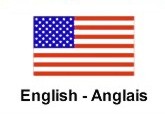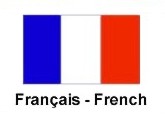What Europe Wants: Not Charity, Propaganda, But a �Cultural Swap" to Promote Friendship
by S. Burton Heath
NEA Staff Correspondent
New York - (NEA) - The town of Morganville, Kansas sent the script of a two-hour pageant to the village of Feves in
France. The script told Morganville�s history - a tale of Indian fighting, dust storms, tornadoes, grasshopper
plagues, among other things.
�When I got to Feves one afternoon, I found it completely deserted,� said Charles L. Todd, executive secretary of
Operation [Democracy. All the people were] at the schoolhouse. The children had been there for hours, rehearsing
songs in honor of the visit of a plain American citizen who represented to them American friendliness and helpfulness.
After they had sung to me, the mayor made a speech in which he referred to the hardships that Morganville had gone
through and he asked me to take back a message of sympathy.
I tell this simple little story because it symbolizes something very worthwhile that is coming out of post-war
affiliation between American and European communities - a real, lasting understanding.
Out of that pageant script, the people of a French town learned that not all Americans are rich; that American money
doesn�t come easily; that Americans who are helping them are just ordinary, hard-working people who themselves
often have a tough time getting along - but just the same, want to help somebody who is playing in even harder
luck.
Todd has recently returned from a two-months visit to some 30 war-devastated towns in France, Holland and Luxembourg, convinced that the time has come for American sister-towns to begin sending gifts that will promote international understanding instead of casual grab-bag charity.
These people get most of their ideas from the movies, which most often do not portray day-by-day normal American
living habits. Where I was, almost nobody heard the Voice of America. Everybody listens to the Army radio at
Stuttgart, which broadcasts popular music, but doesn�t tell them how Americans live and work.
I discovered that the average French farmer doesn�t even realize that Marshall Plan aid is supported by taxes paid
by American farmers and workers. The thought that American government aid actually comes out of the pockets of men
and women was new and a bit startling to them.
Chanute, Kansas has a town-to-town arrangement with Zevenbergen, Holland. The people of Chanute, like those of many
other American towns, were disturbed about the Indonesian situation.
But in addition to sending concrete gifts, Chanute has developed a pen-pal program with its Dutch prot�g�, and more
than a score of persons in each of the cities have been corresponding back and forth. So the Chanute folks asked
their Dutch friends frankly, what was going on, and the Dutchmen, just as frankly, wrote back how it looked to them.
�The thing that is needed in Western Europe today,� says Todd, �is something that individuals and communities can
do - and are doing - in intelligently operated town-to-town programs. It isn�t charity and it isn�t propaganda. It
is exchange of simple understandable knowledge and facts.
Governmental propaganda can�t reach them. They�ve grown to distrust government propaganda. They know that a great
struggle is going on between Russia and the United States, but they don�t really know what it is all about.
Their great desire is to know the truth about the United States. They want things that explain our country to them
more than they want food or old clothes we could send. They want scientific magazines - the popular kind - and
women�s magazines and magazines with pictures. They want movies that show how Americans live and work - not
Hollywood versions. They want specimens of our art and music, pictures of the men and women we respect and honor,
gadgets, examples of American ingenuity and know-how.
That is the sort of thing that will make the people of Western Europe lasting friends of the United States - not
charity. Charity never makes real friendship.
Dunkirk Observer
January 26, 1949.

